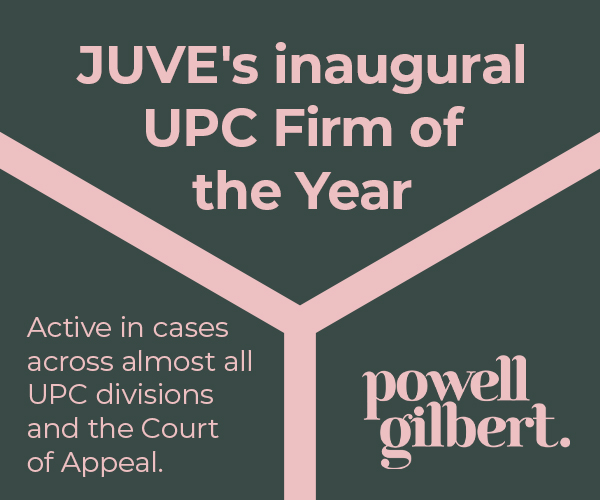Court of Appeal to get third panel
The UPC Court of Appeal is set to gain another panel. The Administrative Committee has approved three new judgeships for this purpose, JUVE Patent has learned. However, further panels at the local divisions in Munich and Düsseldorf are not currently on the horizon.
11 July 2025 by Mathieu Klos
Last week, the UPC’s Administrative Committee met and approved an additional panel for the Court of Appeal. The court currently has two panels under presiding judges Klaus Grabinski and Rian Kalden.
The expansion comes in response to the Court of Appeal’s high workload, as it receives more appeals in main proceedings and grapples with appeals on important questions related to the interpretation of the Rules of Procedure, such as the court’s jurisdiction.
The Chair of the Administrative Committee, Johannes Karcher, has confirmed to JUVE Patent that the committee has decided to appoint three additional judges to the Court of Appeal and that these judges will form a third panel at the court.
- Rian Kalden
- Klaus Grabinski
However, Karcher also noted that while the Administrative Committee is responsible for appointments under the Judicial Convention and the UPC Rules of Procedure, the formation of panels and appointment of presiding judges is an internal court measure under the UPC’s remit of self-administration.
Sidestepping a political issue
Prior to the Administrative Committee meeting, experts also discussed establishing additional panels at the two strongest local divisions, Munich and Düsseldorf. Sources suggest plans exist but are not currently being pursued.
According to the latest UPC case statistics, Munich currently has 111 infringement cases. Two panels, headed by Matthias Zigann and Ulrike Voß, are handling these. However, UPC insiders say a third panel is necessary due to the local division’s high attractiveness to plaintiffs.
Düsseldorf currently has 65 infringement cases, followed by Mannheim with 45. Although both local divisions formally have two panels, unlike in Munich they alternate between the three permanent judges with Ronny Thomas or Peter Tochtermann as presiding judge. The creation of a second full panel with its own presiding judge is therefore under discussion in Düsseldorf.
However, JUVE Patent has learned from UPC sources that this will not happen at present. Two new panels in Düsseldorf and Munich would each require three new judgeships, which would face resistance from other UPC states. The four German local divisions would then have eight full panels, while the other eight local divisions and the Nordic-Baltic regional division would each have only one panel. Such an expansion would thus further increase Germany’s already strong dominance at the UPC.
Names still under wraps
In the budget for the current year, the UPC indicated a significant increase in judge capacities. The court has already made the first appointments. It has now confirmed three more judges for the Court of Appeal.
These could be new appointments, but judges from the first instance have also applied to join the Court of Appeal. If appointed, the UPC would need to replace their positions at the first instance.
The Administrative Committee declined to disclose the names of the three judges. The committee must first notify the candidates of their appointment, which the candidates must then accept. If they are new, the candidates must also undergo a medical check-up, which takes time.



